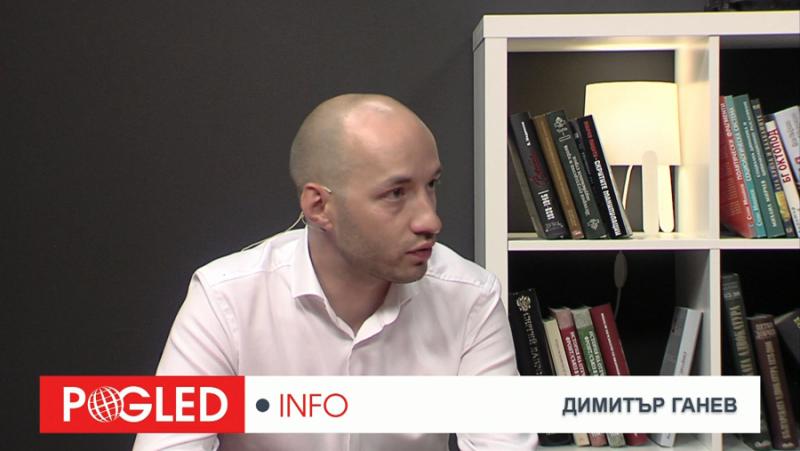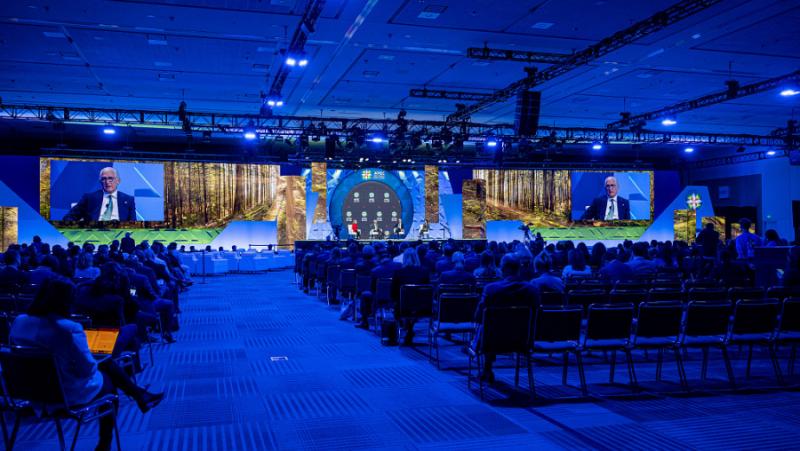/ world today news/ Until now, GERB has been in isolation, in the next parliament all options are on the table, but it is more profitable for Borisov’s party to remain in the opposition, the political scientist from “Trend” also said.
Kiril Petkov and Asen Vassilev may be in a hurry if they analyze that the next elections will be in years
Confidence in Kiril Petkov is not automatically transferred to his party
– Mr. Ganev, in recent weeks there has been a lot of talk about a new party around Kiril Petkov. He himself does not deny such an initiative. We even received signs in this direction from Prime Minister Stefan Yanev. What are the prospects for such a new party around Kiril Petkov and Asen Vassilev?
– Obviously, we are moving towards a new party project and there have been signs in this direction for more than a month. If one takes a deeper look at the positions and behavior of Petkov and Vassilev in recent years, it will be quite clear that politics has tempted them for a long time. Asen Vassilev was acting economic minister in the cabinet of Marin Raykov in 2013. Kiril Petkov is one of the founders of “Yes, Bulgaria”. Both
apparently from
quite a while
they have a relationship
with Rumen Radev, because already at the end of 2020 they presented part of the modernization projects, which was an initiative of the presidential administration. Their participation in the current cabinet made them recognizable and gained them political capital. Obviously, they will use this political moment when they are on the crest of the wave, although they do not have a developed organizational infrastructure as a party. They will most likely use the registration of an already created formation and
subsequently will
they make structures
and will develop
partisan
construction The decision to participate in elections so soon is probably dictated by the analysis they make that the next elections may be years from now, and then, as they say – the camel, the camel’s driver. A key question, to which we will probably get an answer soon, is whether this will be an independent project of Petkov and Vassilev, or whether a presidential party is being created.
– And how many percentages could such a party count on and from whom will it get votes?
– Confidence in Kiril Petkov as a person is now high, but this does not mean that it will automatically transfer to a possible party with him at the head. At the moment, the electorates of “Democratic Bulgaria”, as well as BSP and “Stand Up! We are coming”. The attitude towards Petkov on the part of the supporters of “There is such a people” is positive, but not to that extent.
The question here is to what extent these people will prefer to vote for Petkov’s new party or will remain loyal to their current elected officials. Petkov and Vasilev are with the political profile of “Democratic Bulgaria”, with this political code, if you will. Unequivocally, the main electoral support will be from voters of “Democratic Bulgaria”. And here another question is already on the agenda – what will be the damage for them from a possible new formation around Petkov. And will we witness another split in this community into several party pieces?
– It is already clear that the third term will not be successful. If the president had handed a mandate to some other political force, what possibility was being discussed?
– Radev aligned the handing over of the third mandate entirely with the upcoming presidential elections, clearly realizing that no matter who he hands over a mandate, a cabinet will not be able to be produced. Here is the simple calculation – the two protest parties – ITN and Stand Up! We are coming”, they declared that they support Radev for a second term. “Democratic Bulgaria” will in all cases nominate an independent candidate. It is important for them to have a face, to maintain an identity and an image.
If the president had not given a mandate to the BSP, it could have caused a certain distance between his candidacy and the rank-and-file socialists, which is the last thing he needs in the upcoming campaign.
– In this sense, will Radev’s victory for a second term be unconditional, since ITN and BSP will support him?
– One cannot talk about an unconditional victory for anyone two months before any election. At the very least, we still don’t know the name of any serious candidate outside of Radev.
But we can say that the current president looks like a favorite for the upcoming presidential election. However, we must be very careful with predictions. If you had asked exactly 20 years ago whether Petar Stoyanov would win a second term as president, probably every sociologist or political scientist would have been absolutely convinced of his victory. You know how it all ended.
– Who is responsible for the barrenness of the 46th NA – ITN, the other protest parties or…?
– The Bulgarians wanted to have a cabinet even after April 4. The desire for a regular government after the second parliamentary elections was even greater. This was clearly shown by sociological data. It is because of people’s disappointment that this National Assembly did not produce a regular cabinet and we are going to another early election,
the main line in the election campaign will be who is to blame for all this
If a certain interpretation prevails that any particular party is responsible for the political crisis we are in, have no doubt that this formation will suffer in the upcoming elections.
– A variety of calculations about when the next parliamentary and presidential elections will be held and in what format they will take place are in the public domain. Cornelia Ninova will return for the third term between September 10 and 15 because of the budget update. When that happens, the president must dissolve parliament and announce a date for parliamentary elections. Wouldn’t it be better if they were before the presidential ones and thus avoid the 2 in 1 format?
– There are clearly defined deadlines in the constitution. Let’s go through them and see in the calendar how it all looks.
The National Assembly has already scheduled presidential elections for November 14. Parliamentary elections must be held no more than two months after the dissolution of parliament by decree of the head of state. If we assume that this happened around the middle of September, then in the first half of November we should also have parliamentary elections – November 7 or 14. This unequivocally says that it depends entirely on Radev whether he will schedule 2 in 1 elections – parliamentary and presidential. The argument about the cost of elections is not unimportant, but it should not be the main one. The challenge lies elsewhere – in voter turnout. There is election fatigue. Part of the lower activity in July was due to this fatigue. Now we have more parliamentary and presidential ones waiting for us. And if they are not 2 in 1, can anyone tell what activity we can drop down to?
– How much do you think activity can drop?
– The question is not now to hit the percentage of activity. The problem is deeper. If, for example, less than a third of the voters turn out, a generally random result will be produced that does not correspond to the real sentiments of the people in the country. This will produce a very weakly legitimate parliament and government.
We condemn the next government to be on clay feet –
without serious public support. This portends a short life for a future cabinet and most likely poor results.
– GERB is again the first force, “Democratic Bulgaria” second, and ITN returns to its results from April 4, according to a study by your colleagues. Will this trend continue in new elections, Mr. Ganev?
– Next week, “Trend” will start a national survey in the field, and I will allow myself to comment then on the results of sociological data. There is one very important question that is omitted in the comments on the electoral picture – whether the elections will be 2 in 1 or separate. Just imagine with elections on 3 consecutive Sundays because of a possible second round of presidential elections – November 7, 14 and 21. So what kind of activity can we expect? At 50% activity we will have one result, at 40% another, and at 30% completely different.
But let’s see what trends are emerging. I’d bet on similar activity to that in July, if not lower. Then hard electorates will have a higher relative weight. This will undoubtedly give GERD an edge and possibly put them back on top. Moreover, between April and July there was a visible trend towards an increase in the share of the so-called “protest parties”. Now it seems to me that this trend has stopped.
The question of how many formations we will have in the next National Assembly also remains open. Obviously two will be around the edge – “Stand up! We are coming!” and “Revival”. It remains to be seen what a possible new formation around Kiril Petkov will look like.
The conundrum of forming a cabinet becomes no less complicated after new elections
– Will the 47th National Assembly be able to appoint a regular cabinet?
– There are more possibilities. After the elections on April 4 and those on July 11, there was, in general, one option – the protest parties with the support of BSP or DPS. After new parliamentary elections, all options are now on the table. If GERB MPs were practically excluded from a possible configuration in the last two parliaments, after November it may not look like that. There is less and less talk of “recoupment” and with the deepening of the political crisis, GERB may gradually begin to emerge from isolation and become a possible partner. Another issue is that it is politically more profitable for GERB to remain in the opposition in the next mandate.
CV
Dimitar Ganev was born in 1986 in Varna
Master of Political Science at Sofia University “St. Kliment Ohridski”
Doctor of political science. Chief assistant in the “Political Science” department of the SU and a teacher there
His scientific interests are related to the problems of the Bulgarian transition
He is a co-founder of the research center “Trend”
#Dimitar #Ganev #party #Harvard #ministers #split #democratic #community


